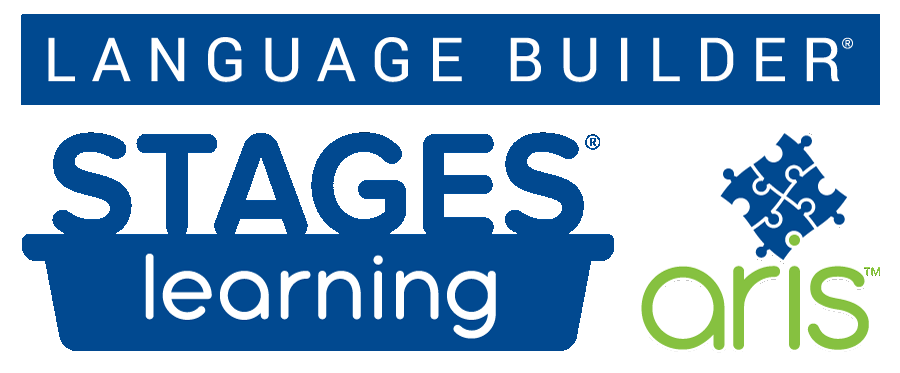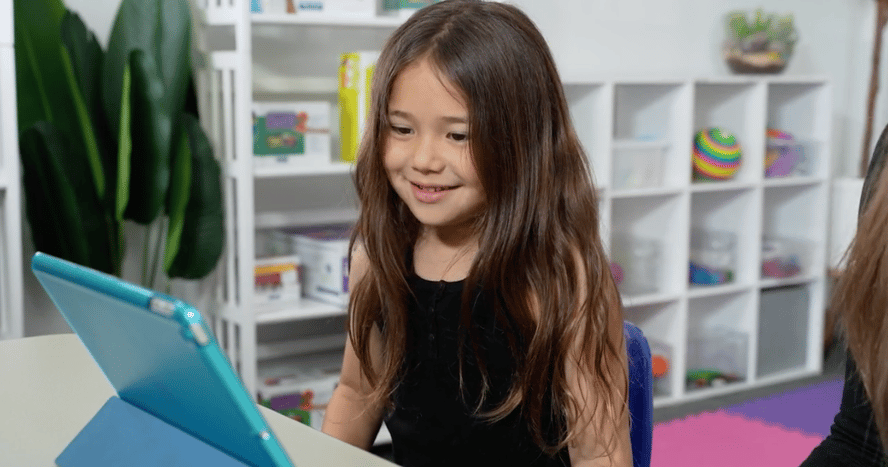
Maybe you’ve been working with an autistic child or adult and you’ve decided to make a career out of it. There are plenty of related jobs in fields like education and speech, but one of the most sought-after positions for supporting autistic people is that of a Board Certified Behavior Analyst (BCBA).
What is a BCBA?
A BCBA is a professional who evaluates, monitors and works to improve maladaptive behavior in autistic individuals. While working to reduce challenging behaviors, BCBAs also help their clients develop functional, communication, and life skills. The professional may work with a student on things like sitting “ready,” requesting an item, using the bathroom, using a communication device, handwashing routines, or even basic reading and math skills. They analyze data frequently to monitor student needs and adapt behavioral goals.
 One modern advantage of being a BCBA is the opportunity to use virtual mental health support via teletherapy for the mutual good of all. Whether in-person or more remote applications, the BCBA typically works with registered behavior technicians (RBTs) to help with the implementation process. A RBT is like a staff member who can provide “boots on the ground,” following the plans as developed by the BCBA and helping to collect data.
One modern advantage of being a BCBA is the opportunity to use virtual mental health support via teletherapy for the mutual good of all. Whether in-person or more remote applications, the BCBA typically works with registered behavior technicians (RBTs) to help with the implementation process. A RBT is like a staff member who can provide “boots on the ground,” following the plans as developed by the BCBA and helping to collect data.
Technology such as phones, videoconferencing, email, instant messengers, and other apps can deliver higher quality interventions to autistic people regardless of their location, while BCBAs can also build a larger client base through using teletherapy.
What will day-to-day work look like as a BCBA?
There are many components to working in this rewarding career; here are some of the things to expect:
-
Supervision:
A BCBA is in charge of providing on-site supervision for program implementers such as RBTs and parents. They help make sure implementation is consistent across all clients, answer on-the-spot questions, model, and troubleshoot any issues that may arise. -
Data:
A critical component in the decision-making process is analyzing, collecting, reviewing, and drawing conclusions from data. The professional looks for patterns and makes adjustments to programming to help students make progress. -
Training:
Supervision and data analysis can make clear where and when follow-up training is needed. This can entail on-the-spot training, the creation of formalized training materials or presentations, program writing, and treatment plan revisions. -
Compliance:
BCBAs are on contract with different companies and providers and must ensure professional standards, policies, and procedures are being followed. The BCBA is also responsible for maintaining student confidentiality and funding source requirements.

After so much focus on the overview and detailed background, you may be left wondering, “When do they get to work one-on-one with the kids?” Time is a tremendous challenge, especially when traveling from site to site, navigating routes and schedules. That’s why, particularly over the past year, teletherapy has become a vital and realistic option for BCBAs looking to manage their time better and meet the needs of more students. BCBAs also work with children in person, and many balance their time between remote learning and therapy and in person.
What are typical salaries?
The salary for a BCBA will vary depending on experience level, but the average U.S. salary is about $60,000 per year. Of course, depending on your job and specific responsibilities, there is potential to earn much more. One particularly lucrative option for a higher salary would be through teletherapy in private practice or through a clinic. In this way, BCBAs could meet the country’s high demand for autism services across densely populated regions even if they do not live in a metropolitan area. BCBAs working in private practice have the potential to earn more than $100,000 annually.
What kind of jobs are available?
BCBAs are often independent contractors, so companies or organizations contract with them to develop and implement therapy support. Some of the most common work settings include:
- Public and private schools
- Mental health clinics
- Hospitals
- Autism-related nonprofit organizations
- Insurance agencies
- Local and state entities
While BCBAs may contract through any of these organizations, the work usually involves some travel to implement interventions within the community, in clients’ homes, and in schools. The use of teletherapy could help to minimize some of that travel.
What does the future look like for BCBAs?
The rising demand for behavior analysts is likely tied to the steady increase in autism diagnoses and insurance plans covering applied behavior analysis (ABA) services. According to the Behavior Analyst Certification Board, the nationwide demand for BCBAs has grown 800% since 2010. While that eight-fold increase has moderated, growth will likely extend into the future as the use of ABA therapy is recognized as an effective intervention for more people than only those diagnosed as autistic. From 2018 to 2028, the Bureau of Labor Statistics predicts 22% job growth for Board Certified Behavior Analysts.

What kind of education do BCBAs need?
In addition to completing a postgraduate degree in education, psychology, or behavior analysis, this field also requires completion of a Behavior Analyst Certified Board (BACB)-Verified Course Sequence (VCS) to qualify to take the Board Certified Behavior Analyst (BCBA) exam.
If you’re just starting your educational career or are looking for the next steps, many of these colleges have a blend of online and in-person programs in ABA. Check out some of the top-rated ABA programs across the United States:
- University of Arizona
- University of Arkansas
- National University (California)
- Western Connecticut State University
- Florida Institute of Technology
- University of West Florida
- Southern Illinois University
- Ball State University (Illinois)
- University of Kansas
- University of Southern Maine
- Endicott University (Massachusetts)
- Northeastern University (Massachusetts)
- Michigan State University
- Saint Cloud University (Minnesota)
- Webster University (Missouri)
- Montana State University- Billings
- University of Nevada, Reno
- Monmouth University (New Jersey)
- Hunter College (New York)
- St. Joseph’s College (New York)
- Cleveland State University (Ohio)
- Kent State University (Ohio)
- University of Oklahoma
- Portland State University (Oregon)
- Arcadia University (Pennsylvania)
- Drexel University (Pennsylvania)
- Mercyhurst University (Pennsylvania)
- Tennessee Technical University
- Texas A&M University
- George Mason University (Virginia)
- University of Washington
- West Virginia University
- University of Wisconsin Whitewater
If you’re reading this and already have a graduate degree in one of those areas, then you just need to complete the BACB-VCS to join the pathway to becoming a BCBA. There are many options for purely online programs if you need some flexibility; here are some more schools to consider:
- Pepperdine University
- Arizona State University
- University of Dayton
- Capella University
- George Mason University
- Purdue University Global
- Regis College
- Simmons University
- University of Massachusetts Global (formerly Brandman University)
- Southeast Missouri State University
- University of Cincinnati
- Cairn University
- St. Joseph’s University
- Clemson University
- University of North Texas
So after getting the run-down on what a BCBA does and how to obtain licensure, do you still want to be a behavior analyst? What about the job interests you the most? Let us know if you have questions.





